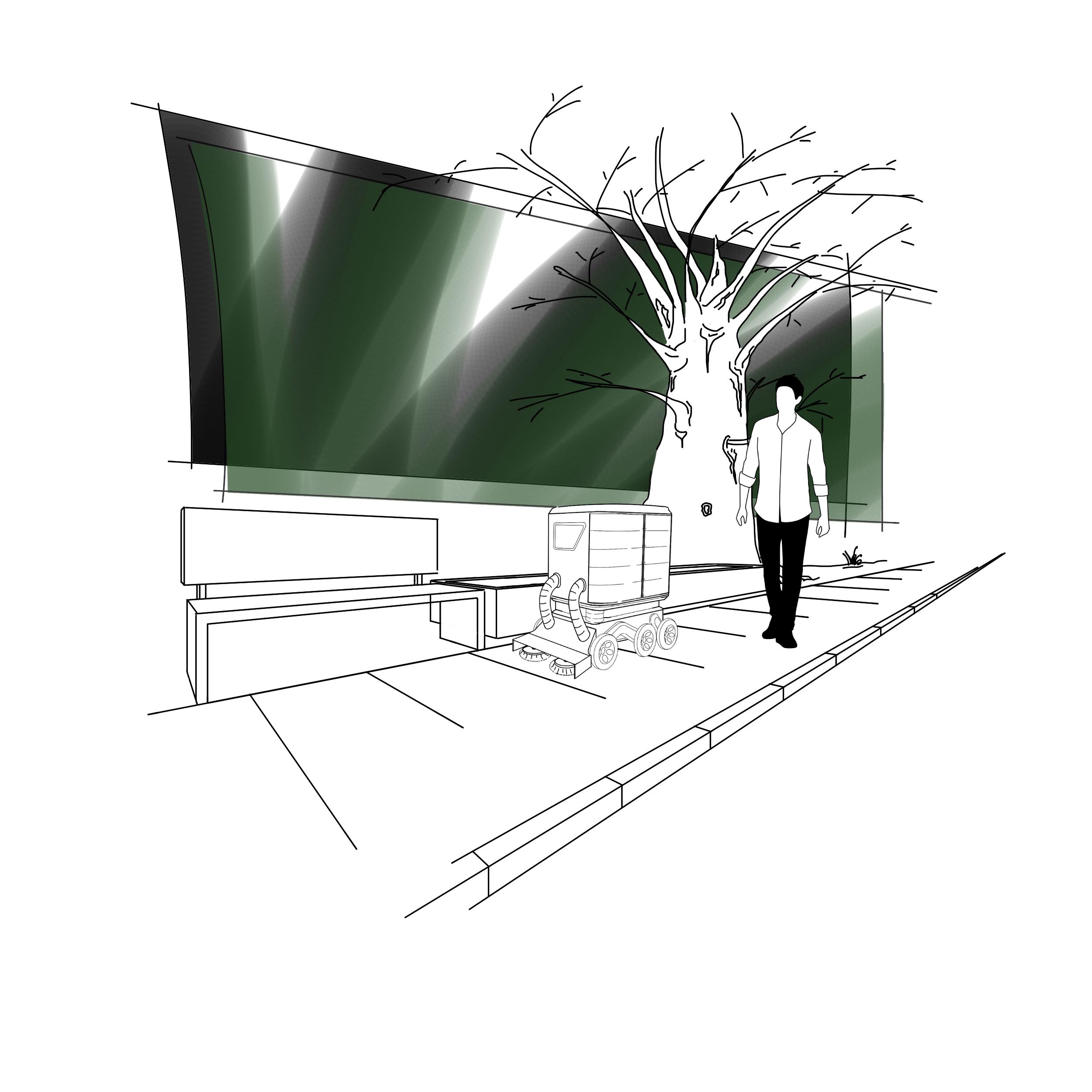The diffusion of new technologies is always accompanied by societal changes. The UrbANT project examined potential societal effects of delivery robots from two perspectives:
In the technology transfer analysis, it was first noted that autonomous small vehicles could prospectively perform a variety of tasks beyond deliveries - from street cleaning and garbage collection to mobile vending machines and information centers. From a positive design perspective, we explored how to promote sustainable integration of autonomous micro vehicles, focussing on the topics of social acceptance and system integration.
The technology impact assessment analyses societal impacts from a critical reflexive perspective. Topics with high potential for conflict are for example:
- Traffic development and distribution of public space: Will there be more or less traffic in the future due to delivery robots? What is the life cycle assessment of delivery robots? How can closed value cycles ("cradle-to-cradle") be achieved? For whom do delivery robots represent improved mobility, for whom do new obstacles arise in everyday life?
- Jobs: Which jobs are replaced and which are newly created, e.g. in maintenance and repair?
- Social interaction: Do delivery robots make us lonelier or do they enable new interpersonal encounters?
- Privacy: How do we ensure transparent business models on the one hand and data sovereignty and protection of customer privacy on the other?
Currently, recommendations for action are being derived from both strands of investigation. The results will be directed at actors from politics, research, industry and administration.
Link Innovationsmanufaktur: https://innovationsmanufaktur.com/en/
Link zum Workshop WeLoveRobots: https://urbant.de/en/news/46-we-love-robots-social-acceptance-of-autonomous-micro-vehicles-in-public-spaces.html




![[Bild: Everyday encounter with a delivery robot]](../../images/news/Urban17.jpg)
![[Logo: BMBF]](../../images/logo-bmbf-de.svg)